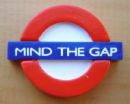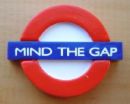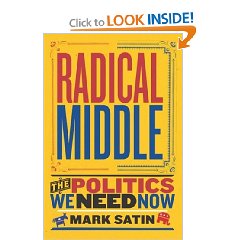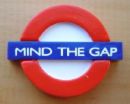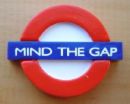
Complements Wikinomics, Solid but Incomplete,
1) Education as the necessary continuous foundation for deliberation
2) Collective Intelligence as an emerging discipline (see the Innovators spread sheet at Earth Intelligence Network); and
3) No reference to Serious Games/Games for Change or budgets as a foundation for planning the future rather than predicting it.
In the general overview the author discusses information cocoons (self-segregation and myopia) and information influences/social pressures that can repress free thinking and sharing.
The four big problems that he finds in the history of deliberation are amplifying errors; hidden profiles & favoring common or “familiar” knowledge; cascades & polarization; and negative reinforements from being within a narrow group.
Today I am missing a meeting on Predictive Markets in DC (AEI-Brookings) and while I regret that, I have thoroughly enjoyed the author's deep look at Prediction Markets, with special reference to Google and Microsoft use of these internally. This book, at a minimum, provides the very best overview of prediction markets that I have come across. At the end of the book is an appendix listing 18 specific predictions markets with their URLs.
The author goes on to provide an overview of the Wiki world, and is generally very kind to Jimbo Wales and Wikipedia, and less focused on the many altneratives and enhancements of the open Wiki. It would have been helpful here to have some insights for the general reader on Doug Englebart's Open Hypertextdocument System (OHS) and Pierre Levy's Information Economy Meta Language (IEML), both of which may well leave the mob-like open wiki's in the dust.
Worthy of note: Soar Technology is quoted as saying that Wikis cut project development time in half.
The book draws to a close with further discussion of the challenges of self-segregation, the options for aggregating views and knowledge and for encouraging feedback, and the urgency of finding incentives to induce full disclosure and full participation from all who have something to contribute.
This book excels in its own narrowly-chosen domain, but it is isolated from the larger scheme of things including needed educational changes, the importance of belief systems as the objective of Intelligence and Information Operations (I2O), the role of Serious Games/Games for Change, and the considerable work that has been done by Collective Intelligence pioneers, who just held their first convergence conference call on 15 January 2007.
Final note: the author uses NASA and the Columbia disaster, and CIA and the Iraq disaster, as examples, but does not adequately discuss the pathologies of bureaucracy and the politicization of intelligence and space. As a former CIA employee who also reads a great deal, I can assert with confidence that CIA has no trouble aggregating all that it knew, including the reports of the 30 line crossers who went in and then came back to report there were no Weapons of Mass Destruction. CIA has two problems: 1) Dick Cheney refused to listen; and 2) George Tenet lacked the integrity to go public and go to Congress to challenge Dick Cheney's malicious and impeachable offenses against America (see my reviews of “VICE” and of “One Percent Doctrine” on Cheney, and my many reviews on the mistakes leading up to and within the Iraq war). See also my reviews of “Fog Facts” and “Lost History” and Gaddis' “The Landscape of History.”
To end on an upbeat note, what I see in this book, and “Wikinomics” and “Collective Intelligence” and “Tao of Democracy” and my own “The New Craft of Intelligence: Personal, Public, & Political,” is a desperate need for Amazon to take on the task of aggregating books and building out from books to create social communities where all these books can be “seen” and “read” and “understood” as a whole. We remain fragmented in the production and dissemination of information, and consequently, in our own mind-sets and world-views. Time to change that, perhaps with Wiki-books that lock-down the original and then give free license to apply OHS linkages at the paragraph level, and unlimited wike build-outs. That's what I am in Seattle to discuss this week.

